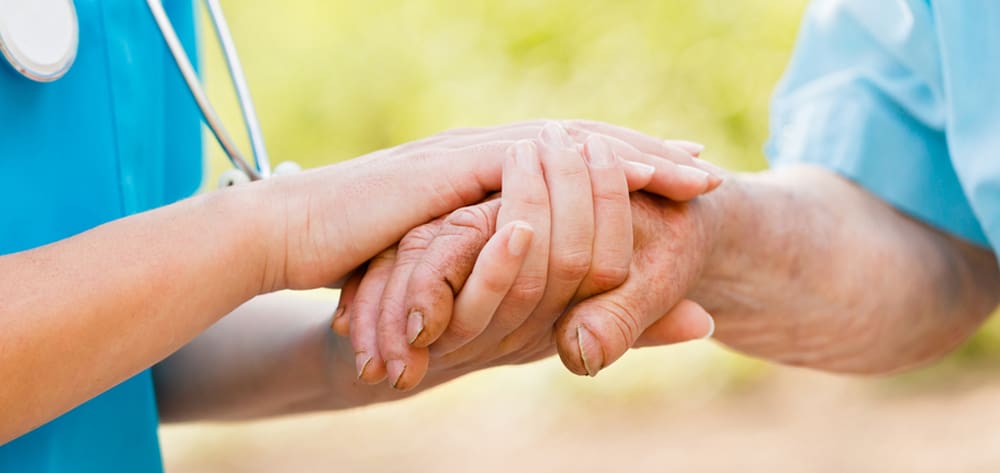Many of us have lasting memories of a few special patients. For me, Joe is one of those patients.
The day he was admitted, Joe was one of five patients under my direct care. I felt sympathy for him—not only because he had suffered a stroke and couldn’t speak, but because he was surrounded by confused and combative brain-injury patients. When Joe arrived at the rehabilitation hospital, no rooms were available on the stroke unit, so he was admitted to the head-injury unit.
Best friend indeed
Early on, we learned that Joe’s best friend was his dog Blue. Since Joe retired, they spent most of their time together. And when Joe had his stroke, Blue was the one who alerted Joe’s wife Ann that something was wrong. Because Blue acted so quickly, Joe was still alive and had the chance to recover from his stroke with the hope of speaking again.
As Joe’s rehabilitation progressed, Ann became a familiar sight on the head-injury unit, visiting Joe daily. One day, she brought Blue to see Joe. Joe still couldn’t speak, but his love for Blue sparkled in his eyes.
Then one evening, Ann called, saying that she was unable to drive to the hospital because of the weather. Snow was falling, and she didn’t think driving would be safe. I offered to transfer her call to Joe’s room and hold the phone to his ear, so she could speak to him as she would if she were in his room. Before we hung up, she thanked me.
Kindness and understanding
The next day when I came to work, I learned that Joe had passed away during the night. I was saddened, but I tried to focus on the idea that he was in a better place.
At that time, I thought Joe would remain in my memory as the man whose dog had saved his life. But today, years later, it is his wife’s act of kindness that triggers my memories of Joe.
I had pretty much forgotten about the phone call that last night of Joe’s life, but Ann hadn’t. She contacted the hospital to explain what happened, and my manager passed her message on to me: “Thank you for allowing me to talk to Joe one last time.”
Not until I heard her message did I understand the significance of my offer to hold the phone to Joe’s ear. It allowed Ann to talk to her husband of 40 years for the last time, even though she couldn’t be there in person.
Of course, I still remember Joe as the man who was saved by his dog and who had to spend his final days on the head-injury unit. But it is Ann’s act of kindness that has remained with me. If she hadn’t expressed her appreciation for my small gesture, I wouldn’t have known how I touched her life.
As nurses, we sometimes take our daily acts of kindness for granted. But Ann’s message taught me that these simple gestures can have a lasting impact on patients and family members.
As nurses, we may touch people when we least expect. And in return, we may be touched when we least expect.
Maria Mackey is a nursing instructor in the diploma program at St. Luke’s Hospital School of Nursing in Bethlehem, Pennsylvania.


















